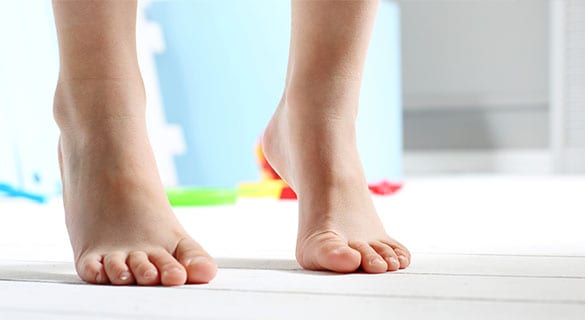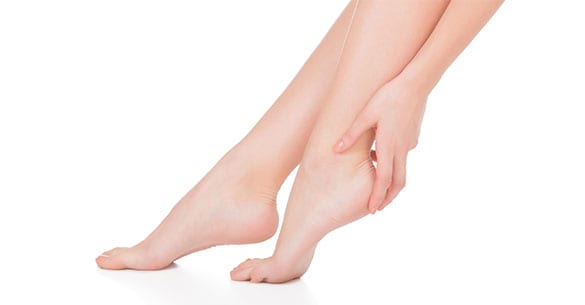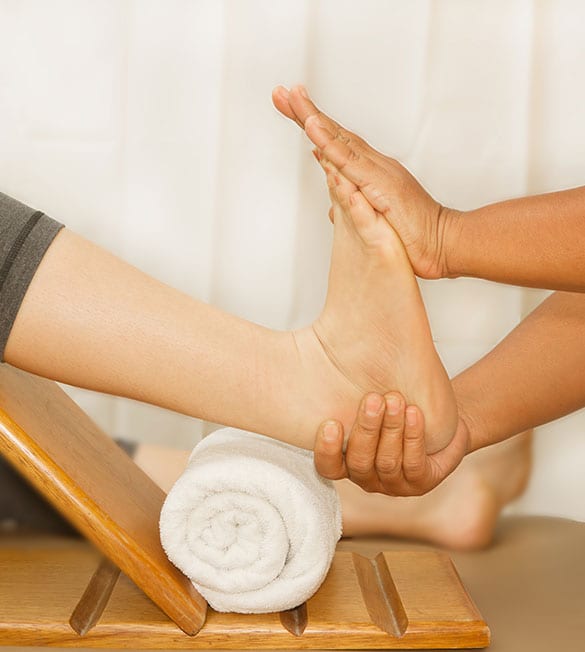
Plantar Fasciitis can be alleviated by the team at LA Orthopedic Group.
Plantar fasciitis, or inflammation of the plantar fascia, is the most common cause of pain in the heel. The plantar fascia is a flat ligament that extends from the toes to the heelbone and supports the foot’s arch.
- Plantar fasciitis is common in both middle-aged and younger people, like athletes or soldiers, who are often on their feet
- The condition can affect one or both feet
CONTACT US TODAY
Causes
Plantar fasciitis is caused by straining the plantar fascia, and repeated strains can cause the ligament to develop tiny tears that result in swelling and pain. Such strains are more likely to happen if any of the following are true:
- The patient has flat feet or unusually high arches
- The patient is overweight
- The patient stands, walks or runs a lot, particularly on hard surfaces
- The patient has tight calf muscles or Achilles tendons
- The patient wears shoes that are either worn out or poorly fitting
- The patient’s feet roll too far inward when they walk


Symptoms
Stiffness and pain in the bottom of the heel are the most common symptoms of plantar fasciitis. The pain can be sharp or dull, and the bottom of the foot may also feel as if it were burning. The pain may develop gradually, or it may occur suddenly after strenuous activity.
The heel pain is often worse under the following conditions:
- The patient has just gotten out of bed
- The patient has done a lot of walking, jumping or running
- The patient has been climbing stairs
- The patient has been sitting or standing for a long time
Seeking Treatment
Plantar fasciitis is one of those conditions that can get worse without treatment. Therefore, a patient who believes they have it should contact their doctor as soon as possible. A patient with a sore heel should also call their doctor if any of the below conditions are true:
- They have injured their heel
- They have trouble walking and/or using their foot normally
- They have a swollen heel accompanied by severe pain
- The heel pain is accompanied by tingling, numbness and/or fever
- The heel pain lasts a week or longer despite home treatments like ice or over-the-counter pain medications
Treatments
There are a number of home treatments a patient may try. The first is to simply avoid activities, like running on concrete, that can cause plantar fasciitis or make it worse. Similarly, the patient should rest the sore foot whenever possible. Ice, pain medications like ibuprofen, and some stretching exercises can also help.
If the pain doesn’t improve after at least a week of home treatment, the doctor may recommend custom-made orthotics or night splints. They may also send the patient to a physical therapist or put the patient in a walking cast to make them properly rest their foot. In severe and stubborn cases, the doctor may administer corticosteroid injections or even recommend surgery.




